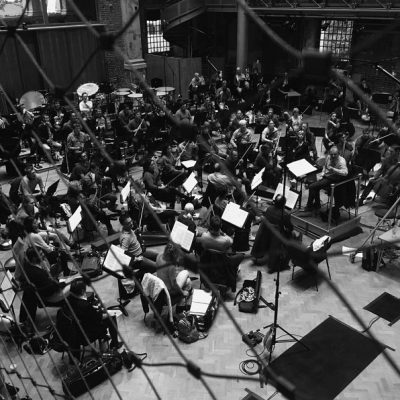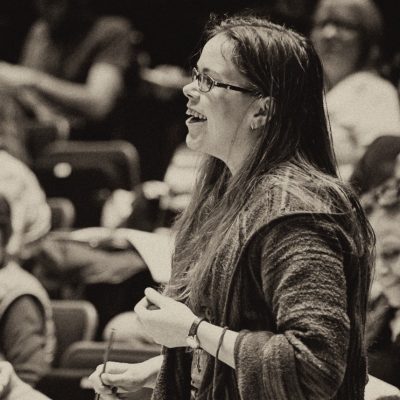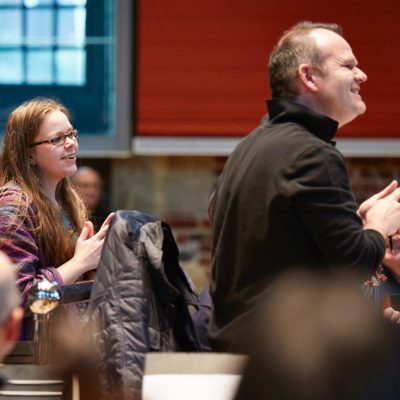Scoot now available on CD
8 May 2020, Llandyssil
In early 2015, I made my way down to London to meet members of the London Symphony Orchestra having been selected to collaborate with the orchestra over a three-minute commission as part of the Panufnik Scheme for composers. Guided by renowned composers Colin Matthews and Christian Mason, the scheme enables composers to experiment with and develop their orchestral writing skills through creating a three-minute composition over twelve months. The resulting compositions are performed and discussed by the LSO and Principal Guest Conductor, François-Xavier Roth, in a public workshop rehearsal at the culmination of the scheme.
I was terrified when it came to the day of the workshop. I had never worked with professional players before and this was no small feat. I hadn’t been expecting many people to turn up but, the stalls were nearly full. I am still grateful for Claire Mattison’s presence that day. Boy does she know how to deliver a pep talk! I think if it weren’t for her, I would have run away.
When it was time to workshop my piece, I was beckoned down to the front to take my place beside Colin Matthews. I didn’t really want to sit down there in the front row, I would much sooner have been on my feet. If only I could recall the bar numbers from memory there would have been no need for me to sit gazing into the score. Never mind, it wasn’t long before I was up again. Each piece had been allocated 45 minutes rehearsal time, and it went by as fast as lightning. I remember being very hot. I also remember David Alberman‘s challenge… I had written double-stopped snapped pizz. in the second violin part with the direction ‘unis.’ above. David asked me why I had done this and explained that they would usually divide the pitches within the section. I told him that if they all played both pitches (using two fingers to pluck) it would surely be louder. He wasn’t convinced, and so they put it to the test. David asked me to go to the back of the room, turn around and close my eyes. The section then played two versions of one of the double-stops in question: once in unison and once divisi. My job was to identify which was which. Well, one was certainly louder than the other! But the real dilemma was whether or not to disclose what I knew…



Two years later, in June 2018, I received an email from the orchestra asking if I would like my piece to be featured on the upcoming disk: Panufnik Legacies III. These disks are an opportunity for the LSO to share and promote the music of composers who have been on the scheme world-wide, and this is the third in the series. I was honoured to have been asked but, horror-struck at the idea of hearing the piece again. My conclusions after the workshop had been that I needed to write less rhythmically-complex material when composing for large ensembles; present a clearer notion of foreground and background (something I had previously been stubbornly averse to); and give my ideas more piece-time to formulate and develop. Scoot had achieved none of those things, at least not consistently, but who turns down the opportunity to have a piece included on a disk recorded by the London Symphony Orchestra!? Well, I wasn’t going to be that person.
Reservations aside, I agreed to go ahead with the recording. Two days had been set aside in April 2019, with François-Xavier Roth returning to conduct the sessions. We had half an hour to record my piece, which isn’t bad considering it’s only four minutes from beginning to end. I was immediately taken aback by the impact the red light was having… “This is better than I remember it!”, I thought to myself.
Anyway, see what you think. The disk was released on 8 May and is now available to buy and/or listen to on a multitude of platforms.
